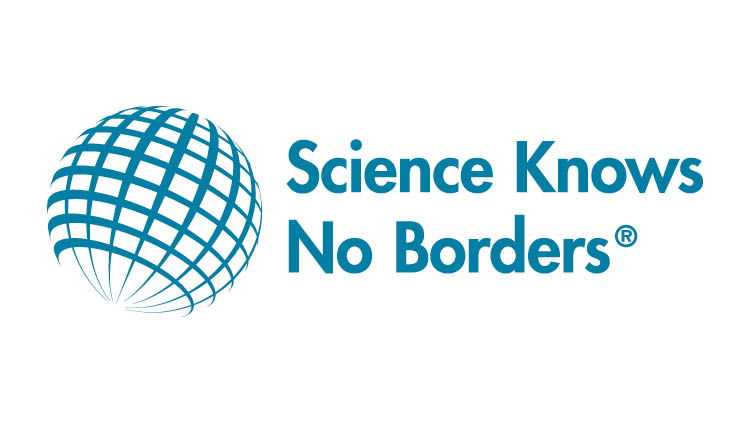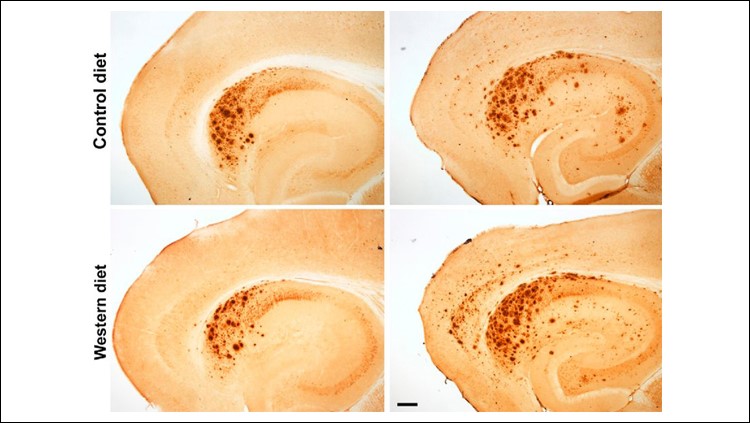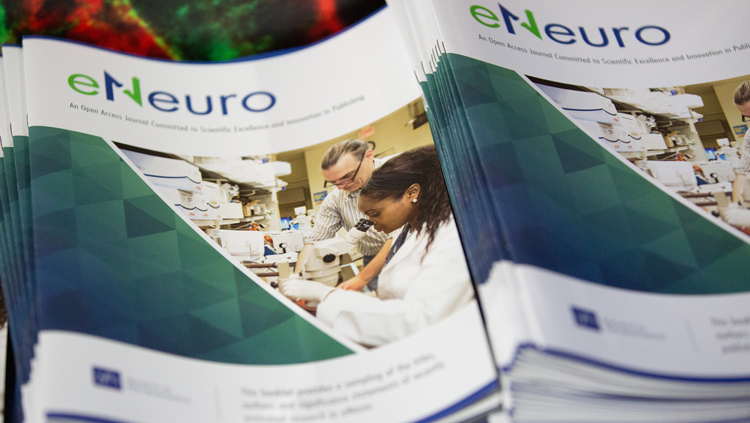Overcoming International Obstacles With the Science Knows No Borders Program

Advancing neuroscience is an endeavor that extends beyond nationality, one that requires the collaboration of researchers and institutes across the world. As a global organization, SfN has long dedicated support to international collaboration. In response to increased travel restrictions and the growing needs of SfN’s international members, the Society has launched the Science Knows No Borders (SKNB) Program, an effort to provide a platform for presenters unable to acquire travel visas for Neuroscience 2019.
SKNB was the brainchild of the Program Committee, the 55 volunteer members who determine when and in what format each of the ~14,000 abstracts are presented at the annual meeting.
“The need for a program like SKNB was apparent after Neuroscience 2018. Members expressed increasing concerns about the recent travel restrictions imposed by the U.S. and elsewhere, making travel to the annual meeting difficult for a number of international scientists,” explains Patricia Janak, chair of the SfN Program Committee. “The Program Committee suggested that a working group be formed, and SfN Council unanimously endorsed the committee’s request to create the Visa Issues Working Group. The group brainstormed ways for scientists affected by travel restrictions to share their research and proposed the SKNB program.”
Under this new program, SKNB participants involved in nanosymposia, minisymposia, and symposia sessions will have the option of providing pre-recorded presentations that will be played in their session during their scheduled speaking time. SKNB program poster presenters will have their posters displayed on their designated poster board. Additionally, attendees will be able to offer feedback and exchange contact information through an online chat hosted on Neuronline, allowing participants to take part in some of the networking that makes the annual meeting so valuable.
Strengthening Participant Careers
SKNB participants reflect the broad diversity of the neuroscience community and come from a range of institutions, regions, and fields of study.
“My research mainly focuses on the cognitive capacities of patients with ALS at the latest stage, known as completely locked in syndrome,” explains Majid Khalili Ardali, an Iranian PhD student at the Institute for Medical Psychology and Behavioral Neurobiology, University of Tuebingen.
SfN recognizes that this initiative is no replacement for physically attending Neuroscience 2019. However, the opportunity to network with colleagues and institutions and to receive feedback — even remotely — is crucial to all neuroscience research.
 Shahrzad Ghazisaeidi, University of Toronto
Shahrzad Ghazisaeidi, University of Toronto
“Like any other scientist, sharing results and brainstorming with other people from different focuses and different cities can boost our work, although these types of virtual connections are not ideal,” says Shahrzad Ghazisaeidi, an Iranian PhD candidate researching mechanisms of sex differences in neuropathic pain signalling at the University of Toronto. “Like any other graduate student, interacting with other people in the field, especially pioneers, will bring value to our work. Networking and finding mentors are essential to promote one’s career.”
Mohammad Abdolrahmani, a research scientist studying active visual perception and decision making at the RIKEN Center for Brain Science, agrees.
“One of the goals of scientific communities is to share scientific work, and to learn from each other. So, I think SKNB is a great idea as it helps 'politically banned' scientists to share their work.”Mohammad Abdolrahmani
RIKEN Center for Brain Science
“I would like to share my work, and get feedback to improve on my future works.”
Serving Neuroscientists in Need
This initiative also includes volunteer members working with SfN. Donating up to two hours of their time, volunteers will display participant abstracts in the poster hall and deliver copies of recorded presentations during symposia sessions.
“The goal of SKNB is to provide opportunities for scientists who have been denied a travel visa to share their science and engage with the annual meeting,” says Janak. “Science is truly an international endeavor; progress depends on all of us contributing. The Program Committee believes that global collaboration and sharing of new findings is an essential part of neuroscience, and therefore, the annual meeting. We hope to provide scientists affected by travel restrictions a voice and a platform for their research with this program.”
SKNB is a new addition to the SfN annual meeting, and the pilot program will rely equally on the participating researchers, volunteers, and meeting attendees. During Neuroscience 2019, look for the SKNB logo on posters and presentation slides. In the Neuroscience Meeting Planner (NMP), abstracts participating in the program can be found by selecting the Science Knows No Borders filter. Join the conversation with presenters on Neuronline.



















